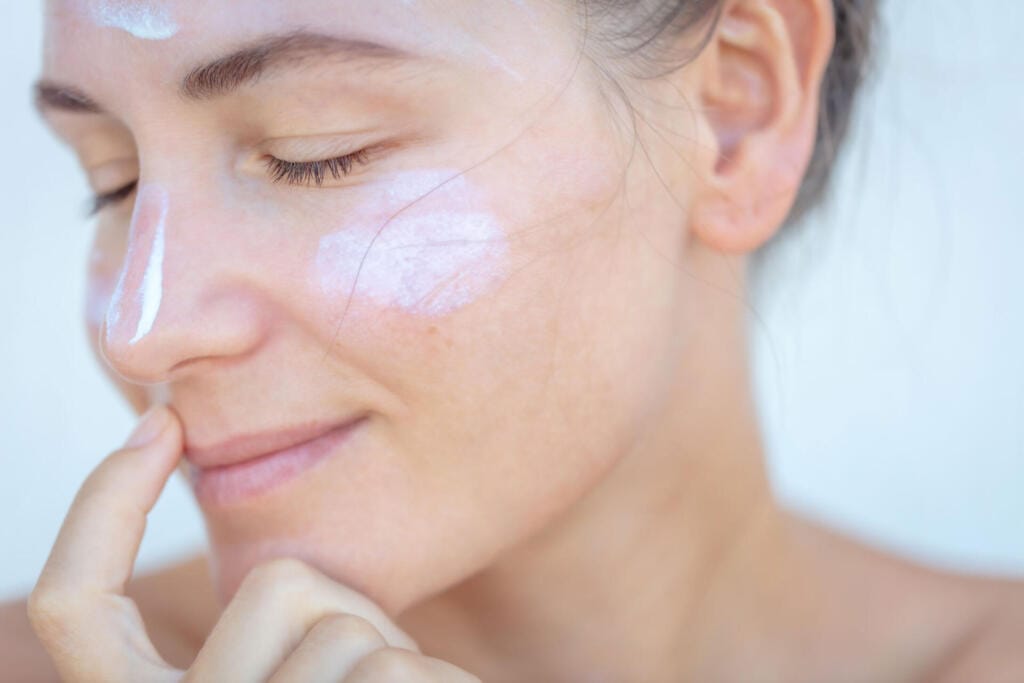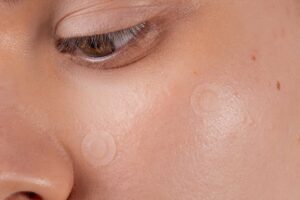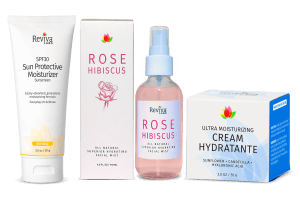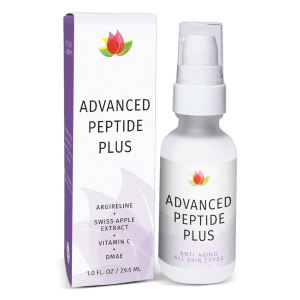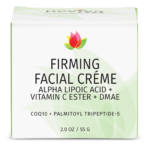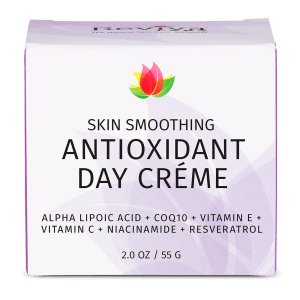Ingredients, Reviva Labs, Skin Care
What Really Happens to Your Face If You Don’t Use SPF Daily
Every day, our skin battles against unseen enemies. No, I’m not talking about pollution or stress (though those don’t help either). I’m talking about the sun’s ultraviolet (UV) rays—one of the most damaging forces that can harm your skin. You may not feel it, you may not even see it happening, but the truth is, if you’re skipping SPF, your skin is quietly accumulating damage that will make itself known sooner or later. And trust me, you don’t want to meet that version of your skin in the mirror.
If you’ve ever wondered why dermatologists and skincare enthusiasts are always harping about the importance of sunscreen, there’s a good reason. Consider this: according to the Skin Cancer Foundation, up to 90% of the visible changes commonly attributed to aging are caused by sun exposure. Not genetics. Not time. The sun. That’s a mind-boggling statistic, and one that should make anyone think twice about skipping sunscreen, even on a cloudy day.
The Sun: Friend or Foe?
You might be thinking, “But the sun is good for me, right?” Yes, the sun provides essential Vitamin D, lifts your mood, and gives life to the planet. But for your skin, prolonged, unprotected exposure is a ticking time bomb. UV rays—both UVA and UVB—penetrate your skin, causing immediate and4 long-term damage that you might not even be aware of.
UVA rays are the silent destroyers. They’re long-wave rays that penetrate deep into the skin’s layers, breaking down collagen and elastin, two proteins that keep your skin firm and smooth. UVA rays are present all day, every day, whether it’s sunny, cloudy, or rainy. They’re the primary culprits behind premature aging, leading to wrinkles, sagging skin, and age spots.
UVB rays, on the other hand, cause visible damage—think sunburns and tanning. UVB rays don’t reach as deeply as UVA rays, but they are responsible for the majority of skin cancers. And don’t be fooled by that burn: even a tan is a sign of skin damage. Your skin darkens as a defense mechanism, producing more melanin to protect itself from the sun. But this response is a double-edged sword, as it can lead to hyperpigmentation, uneven skin tone, and more serious health risks like melanoma.
Premature Aging: The Biggest Culprit
Ever notice how people who spend a lot of time in the sun seem to age faster than those who don’t? It’s not your imagination. The sun is the single largest factor contributing to premature aging, often called “photoaging.” And the scary part? You can’t always see it happening until it’s too late.
Here’s what’s going on: UV exposure causes oxidative stress, which creates free radicals. These free radicals break down collagen and elastin fibers in your skin, which leads to the loss of firmness, the appearance of fine lines and wrinkles, and sagging. Over time, these effects accumulate, making you look older than your years.
Fine lines and wrinkles are among the first signs of this sun-induced damage. You might not notice them right away, but they’re forming beneath the surface. You might even notice that these lines seem to appear more on the areas that are most exposed to the sun—like your forehead, around your eyes, and around your mouth. That’s no coincidence. These are all high-exposure areas, and without SPF, you’re accelerating the breakdown of your skin’s natural scaffolding.
Uneven Skin Tone and Hyperpigmentation
One of the most common consequences of skipping sunscreen is uneven skin tone. Sun exposure stimulates the production of melanin, the pigment that gives your skin its color. While this is your skin’s way of protecting itself, it often results in irregular patches of darker skin known as hyperpigmentation.
These dark spots can develop over time and worsen with continued exposure. Age spots, also known as sunspots or liver spots, are a type of hyperpigmentation that usually appears on areas frequently exposed to the sun, like the face, hands, shoulders, and arms. While they’re harmless, they can add years to your appearance and are notoriously difficult to treat.
And it’s not just age spots. Melasma, another type of hyperpigmentation, can be exacerbated by sun exposure. This condition causes brown or gray patches on the face and is often difficult to manage without strict sun protection. It’s common in women, particularly during pregnancy, and is heavily influenced by hormones. If you’re dealing with melasma, daily SPF is non-negotiable if you want to keep those dark patches from getting worse.
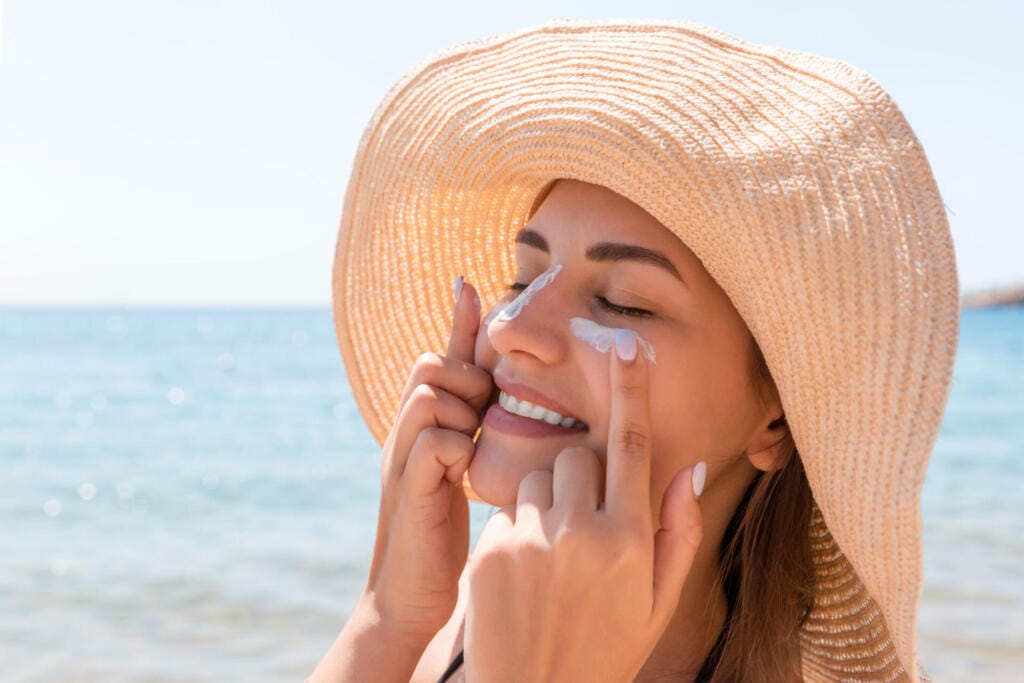
The Risk of Skin Cancer
Now, let’s get to the real heavy hitter: skin cancer. The most serious consequence of prolonged, unprotected sun exposure is an increased risk of skin cancer, including melanoma, basal cell carcinoma, and squamous cell carcinoma.
Skin cancer is the most common cancer in the United States. According to the American Academy of Dermatology, approximately 1 in 5 Americans will develop skin cancer in their lifetime. And while it’s often treatable when caught early, it can also be deadly, particularly in the case of melanoma. The key to reducing your risk? Daily SPF.
Even on cloudy days, up to 80% of UV rays can still reach your skin, which is why it’s crucial to wear sunscreen every single day, regardless of the weather. And if you think sitting indoors all day offers protection, think again. UVA rays can penetrate windows, so unless you’re working in a dark, windowless cave, you’re still at risk.
But I Have Dark Skin—Do I Really Need SPF?
There’s a pervasive myth that people with darker skin tones don’t need sunscreen because they have more melanin, which offers some protection against the sun. While it’s true that darker skin has more natural protection than lighter skin, it’s far from enough to skip sunscreen altogether.
Darker skin tones are less likely to burn, but that doesn’t mean they’re immune to sun damage. People with darker skin are still at risk of developing hyperpigmentation, premature aging, and skin cancer. In fact, when skin cancer occurs in people with darker skin, it’s often detected at a later, more advanced stage, making it more dangerous.
So yes, regardless of your skin tone, you need SPF. Every day. No exceptions.
Sunscreen: Your Skin’s Best Defense
If all this talk of sun damage has you feeling anxious, there’s good news: you can protect your skin starting right now. Daily use of SPF not only prevents new damage but can even allow your skin to repair itself. Studies show that consistent sunscreen use can improve the appearance of pre-existing sun damage, including hyperpigmentation and fine lines.
To truly protect your skin, you need to apply a broad-spectrum sunscreen that protects against both UVA and UVB rays. Look for an SPF of at least 30, and don’t be stingy with it. Most people don’t apply enough sunscreen, which reduces its effectiveness. A good rule of thumb is to use about a nickel-sized amount for your face and about an ounce (a shot glass full) for your entire body.
Reapply every two hours if you’re outdoors, sweating, or swimming. And yes, you still need to reapply if you’re using makeup with SPF—it’s not enough on its own.
Repairing the Damage
If you’re reading this and thinking, “Well, I’ve definitely skipped SPF too many times,” don’t panic. While prevention is key, there are ways to repair some of the damage that’s already been done.
First, start using SPF immediately. The sooner you protect your skin, the less damage it will accumulate. You can also incorporate antioxidants like Vitamin C into your skincare routine to neutralize free radicals and support collagen production.
Retinoids, which are derived from Vitamin A, are another powerful tool. They speed up cell turnover, helping to reduce the appearance of fine lines, wrinkles, and sunspots. Just remember, retinoids can make your skin more sensitive to the sun, so SPF is an absolute must if you’re using them.
Your Skin’s Future Is in Your Hands
The bottom line? Skipping sunscreen may seem like a small thing, but it can have serious long-term consequences for your skin’s health and appearance. Whether you’re concerned about premature aging, hyperpigmentation, or skin cancer, daily SPF is the most effective weapon in your skincare arsenal.
The good news is, it’s never too late to start protecting your skin. So, tomorrow morning, before you walk out the door, slather on that sunscreen! You’ll thank yourself later—promise.



